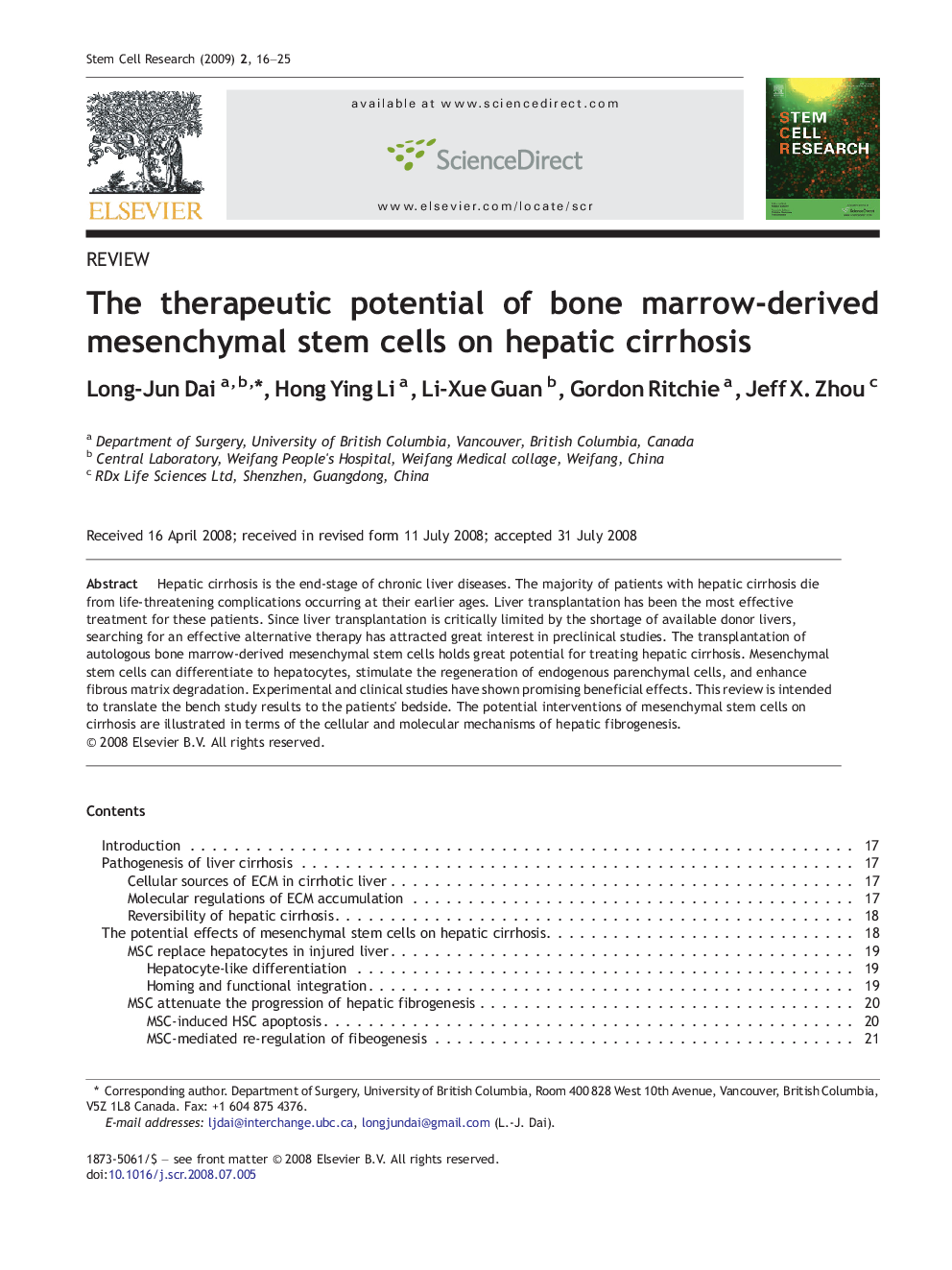| Article ID | Journal | Published Year | Pages | File Type |
|---|---|---|---|---|
| 2094380 | Stem Cell Research | 2009 | 10 Pages |
Hepatic cirrhosis is the end-stage of chronic liver diseases. The majority of patients with hepatic cirrhosis die from life-threatening complications occurring at their earlier ages. Liver transplantation has been the most effective treatment for these patients. Since liver transplantation is critically limited by the shortage of available donor livers, searching for an effective alternative therapy has attracted great interest in preclinical studies. The transplantation of autologous bone marrow-derived mesenchymal stem cells holds great potential for treating hepatic cirrhosis. Mesenchymal stem cells can differentiate to hepatocytes, stimulate the regeneration of endogenous parenchymal cells, and enhance fibrous matrix degradation. Experimental and clinical studies have shown promising beneficial effects. This review is intended to translate the bench study results to the patients' bedside. The potential interventions of mesenchymal stem cells on cirrhosis are illustrated in terms of the cellular and molecular mechanisms of hepatic fibrogenesis.
